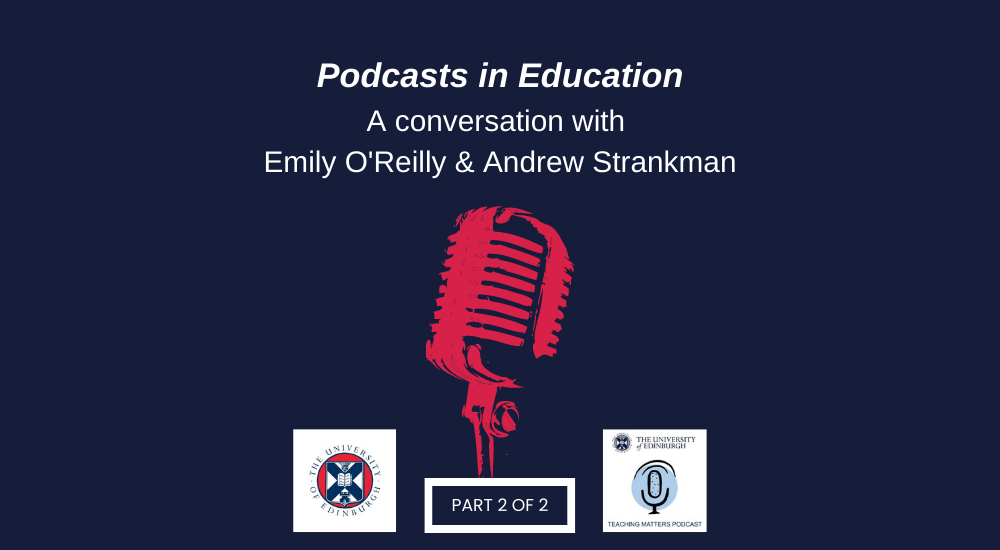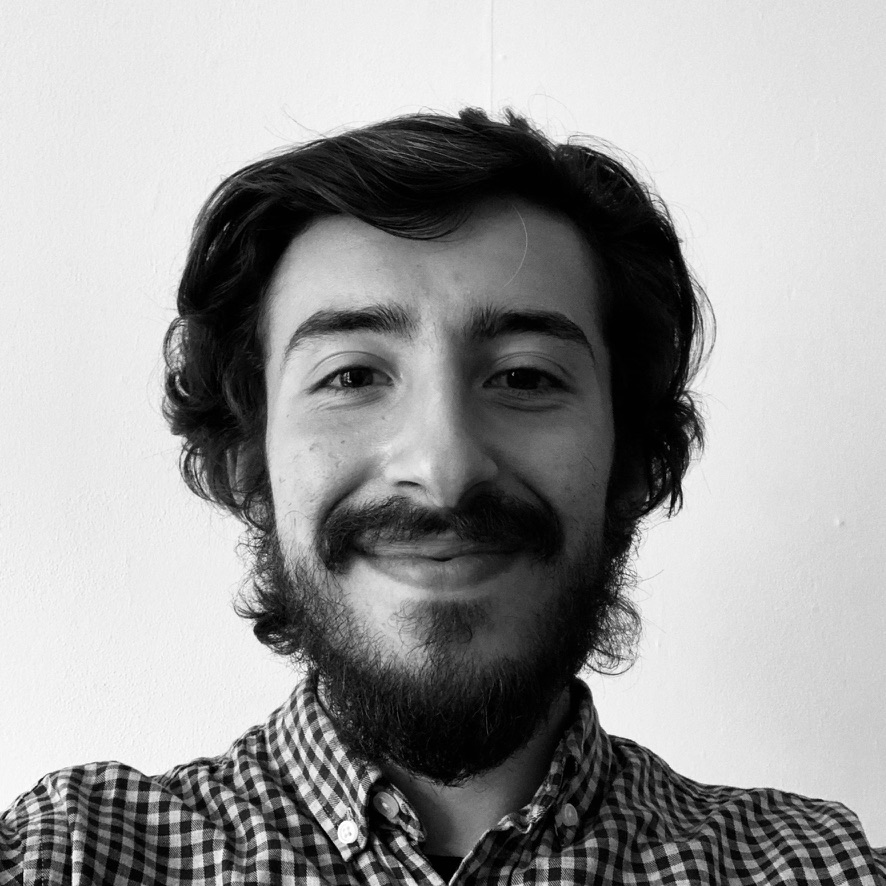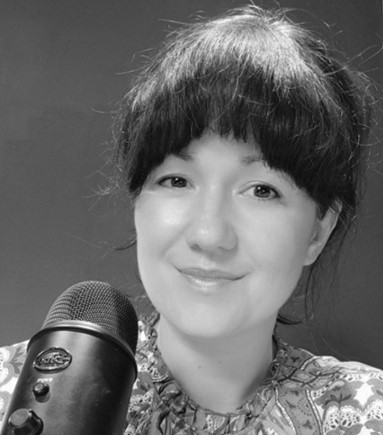
In this episode, Dr Emily O’Reilly and alumnus Andrew Strankman from the School of Biomedical Sciences continue their excellent discussion on podcasting in education. This is the second in a two-part conversation facilitated by Teaching Matters’ Eric Berger, which allows Emily and Andrew to consider the ‘whys, whats, and hows’ of podcasting through the lens of their PTAS-funded research project on educational podcasts.
If you haven’t already, make sure to access the first episode: Part 1.
This episode, Part 2, finds Emily, Andrew, Eric delving into the bigger picture of podcasting in education, beginning with what needs to be ticked off the check-list ahead of hitting the record button.
If you’re considering integrating a podcast element into your syllabus, Emily and Andrew suggest that it is well-worth taking the time to reflect on what exactly you’re hoping the podcast will achieve. Is it a lecture podcast – a podcast that ‘replaces’ a traditional live lecture, to benefit from the efficiency of quick re-editing? Is it a supplementary podcast – one that supports particular weeks of the syllabus in some unique way? Is it a guest lecture podcast, or a student-led podcast? Moreover, how familiar are you with recording and editing tools? And how much effort would you want to dedicate to producing this piece of media?
Despite these seemingly complicated variables, Emily, Andrew, and Eric all agree that the critical thing is to simply get started and “trust in your instincts”. As Andrew notes:
… Emily, [you] told me that, at the very beginning, not to get overwhelmed, and that it takes time to build up a repository of information. I think for me, stepping into the project, when you had already come into a lot of recording, and you had all these curated podcasts, it’s like, oh, my gosh, I’m jumping into the deep end of the pool. I don’t know what I’m doing. And I think that that fear of, or a barrier of entry, I don’t think it should be as real as maybe it feels to people when they hear, “put a podcast in your class.” And I think that’s been the theme of us talking over maybe the last 10, 15 minutes. You don’t need a lot of technical materials. You don’t have to go crazy editing… I guess I want to just say that, again, just to make sure that anyone that listening knows: Hey, it’s it’s easier than it sounds. We say all these terms, all these definitions, [but] just jump in and record.
Emily agrees, advising to push against the characterisation of podcasts as difficult to make: that their production is inaccessible in some way to non-experts, or those with time or budget constraints. Pointing to our experiences of a post-Covid era in particular, Emily suggests that educators are now more equipped than ever to embrace asynchronous instruction, which is where the massive benefits of podcasting can come in. As she recommends…
You know, just record yourself having a natter, and summarizing some information. If you’re not sure, have a look at some of the larger lectures that you have that might be in written format, or a lot of big set of written notes, and maybe summarize and maybe talk about it. If you say something wrong, just pause and just say, Oh, I’m re-recording that. And then you know, later on when you’re editing it, just cut that bit out. Yeah, just have a go at it… I think that as the project has demonstrated, the students really enjoy them, you know, they’re making a big impact in terms of student satisfaction on programs that were involved in.
Timestamps:
2.15 Podcasts as a ‘continuum’ – podcasts can take many forms (from the informational monologue to the group podcast), but which suits your teaching needs?
8.52 How does one begin to make a podcast? Our speakers consider the tricks and tools of the trade (with Audacity playing a core role).
17.05 Barriers to entry in podcasting, or their lack thereof: “Just jump in and record”, say Emily and Andrew, “it’s easier than it sounds!”
24.40 Student responses to podcasting – increasing engagement and sense of interaction.
30.19 What should both teachers and their institutions remember about the use of podcasts in education? Emily and Andrew reflect on embracing trial and error.
Emily O’Reilly
Dr Emily O’Reilly is lecturer within the Deanery of Biomedical Sciences at The University of Edinburgh. Emily teaches on the Global Health & Infectious Disease programme and is deputy director for the International Animal Health online M.Sc. programme. She contributes to the undergraduate global health and infectious disease course and has supervised over 30 MSc student projects to date. Emily qualified as a veterinarian from the University of Glasgow in 2008 and returned after two years in general practice to complete a PhD in broiler chicken immunity. She continued this research as a postdoctoral researcher and also undertook postdoctoral research in dairy mastitis and AMR. She has been with The University of Edinburgh since 2016 becoming a FHEA in 2020. She teaches on a range of areas including immunology, diagnostics, vaccinology, and food security. In her spare-time, she enjoys gardening and walking her border collie!
Andrew Strankman
Andrew Strankman is an alumnus of the MSc Global Health and Infectious Diseases programme at The University of Edinburgh. His master’s dissertation work focused on the usage of supplementary podcasts in medically relevant educational courses combined his backgrounds as a microbiologist and an educator. Andrew works as a Biology Lecturer in the United States where he continues to conduct investigation into science and medical education.
Series produced and edited by:
 ERIC BERGER
ERIC BERGER
Eric is an alumnus of The University of Edinburgh, where he studied Mathematics and Statistics student and worked as a podcasting intern for Teaching Matters. Eric is passionate about university student mental health, interviewing researchers for the Student Mental Health Research Network at King’s College London, leading the University of Edinburgh’s WellComm Kings Peer Support Scheme, and conducting research on stigma for People With Mental Illnesses (PWMI). In his free time, he enjoys watching and playing sports, over-analysing hip-hop songs, podcasts, and any sort of wholesome shenanigans.
Aish Jayamohan
Aish Jayamohan is a PhD researcher in English literature at The University of Edinburgh, specialising in twentieth century writing, critical theory, and gender & sexuality studies. Their interest in critical pedagogy emerges from the trans feminist priorities of their research and teaching, and ongoing engagements with learning and teaching at and beyond the Institute for Academic Development. You can find them on Twitter at @ajayamoh.




